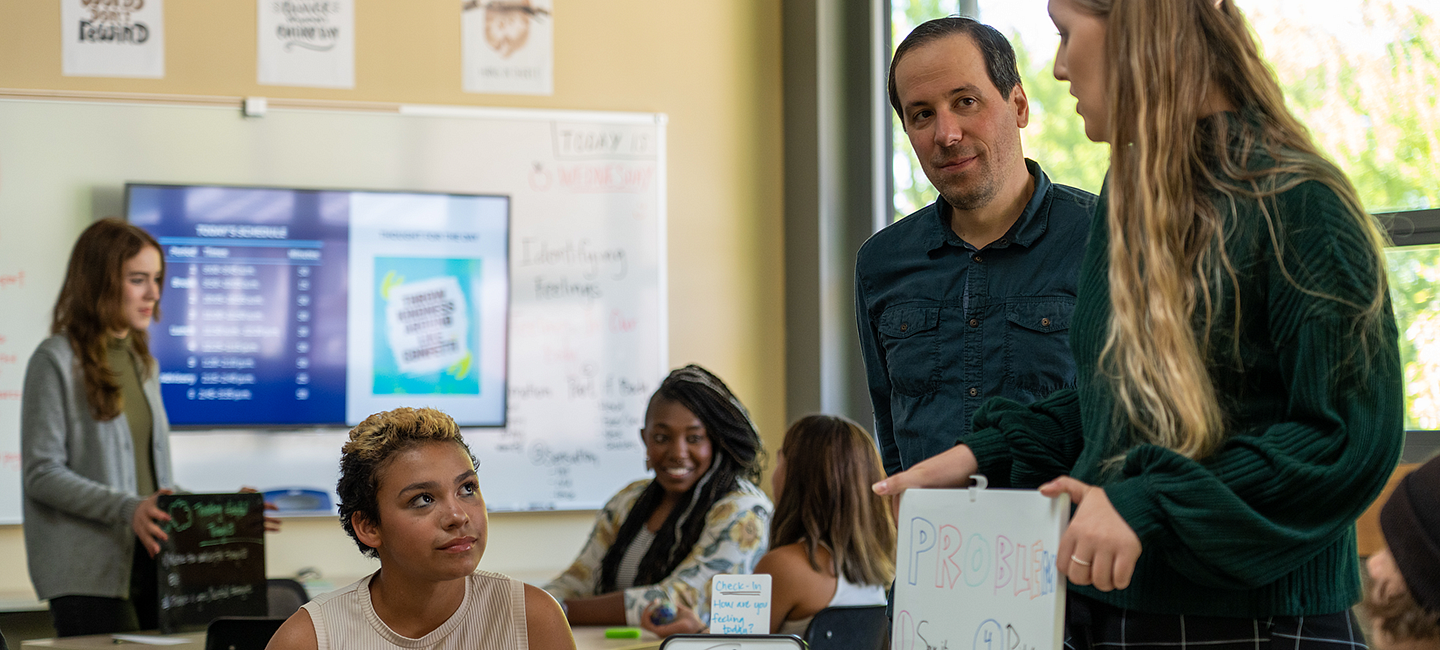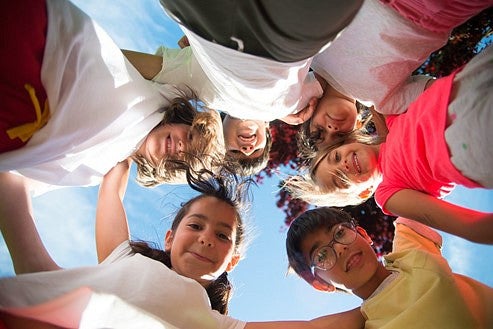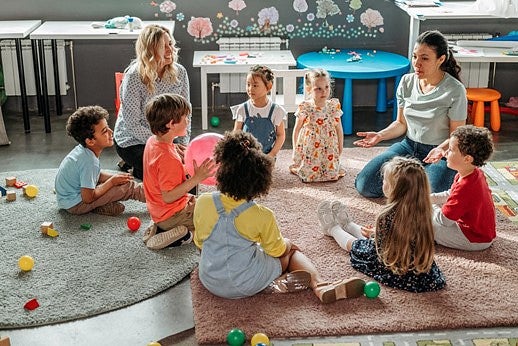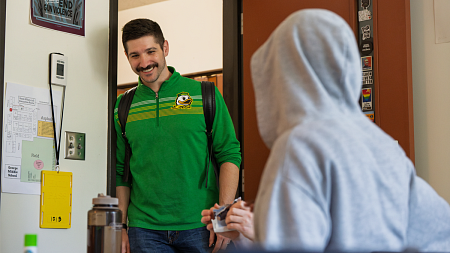
Winner of the 2023 Distinguished Friend to Behavior Therapy Award
This award recognizes the Ballmer Institute's groundbreaking work to craft and implement a national model for a bachelor’s-level specialty training program in children's behavioral health.

A New National Model in Children’s Behavioral Health
The vision of the Ballmer Institute is that access to high-quality mental health support is a fundamental right of all children and families, starting in Oregon. Accomplishing this vision requires expanding the behavioral health workforce to meet the growing need for support among children and adolescents. And doing that requires new approaches like the child behavioral health specialist!

Our child behavioral health programs provide students with the latest evidence-based strategies to cultivate universal child behavioral health. Whether it is by entering a new profession as a child behavioral health specialist, or continuing in your existing youth-serving role, the Ballmer Institute equips you with the skills needed to support youth well-being.
The Ballmer Institute was launched in 2022, made possible by a transformational lead gift from Connie and Steve Ballmer to provide foundational support for core operations.
Additional support is needed to build, scale, and expand our innovative approach to improving the behavioral health of youth in Oregon and across the nation.



